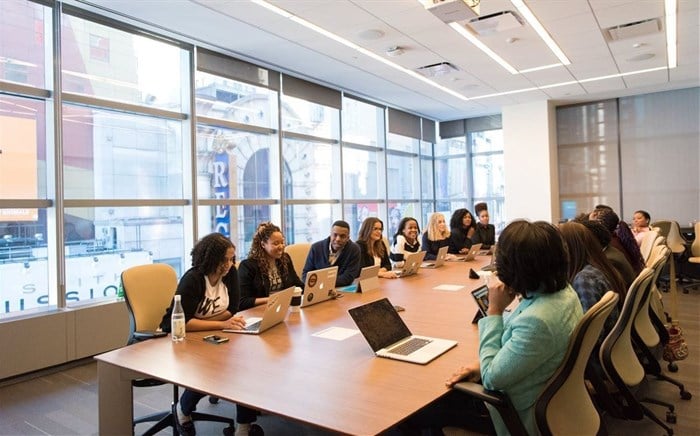Top stories


Marketing & MediaAI changed how I work as a designer, faster than I expected
Emmanuel Naidoo, Ignition Group 4 hours




More news










ESG & Sustainability
Can Ramaphosa’s crisis committee solve South Africa’s water woes?
















And while some of those changes may be obvious (such as the introduction of Covid protocols), others are more a result of changing technology or new habits we embraced during lockdown. Here’s some advice on what to expect.
Yes, travel is back – but many people feel that since the virus hasn’t been entirely relegated to the past (an unlikely situation), they’d still prefer to attend meetings and conferences virtually. As a result, it may be some time before the packed conference rooms of yesterday make a comeback. In the meantime, you can expect smaller gatherings at more boutique venues. And the sessions will probably be shorter, too – a hangover from the days when lengthy Zoom sessions left us feeling fatigued. But don’t be misled – shorter and smaller could actually be a good thing because, with fewer costs involved, organisers can attract top calibre speakers.
The takeout for visitors? Plan carefully. If your event is hosted at a boutique venue, there’s a real possibility that you may not be able to stay on site. Ask your TMC to investigate nearby accommodation options and check transport options to and from the venue.
The good news? Micro events offer particularly fertile ground for networking. You can make the most of the opportunities presented by researching fellow delegates and speakers ahead of time to pinpoint those who may be able to add value. You could strengthen your engagement further by mailing an introduction before your meeting, letting potential partners know about what you offer and how a future relationship could be mutually beneficial.
Many countries worldwide have adopted a more relaxed mindset towards Covid protocols (most states in the US have dropped their mask mandates, for example). However, many others are still following strict protocols – you may even be required to submit to onsite rapid testing. Speak to your TMC to find out ahead of time what is needed from visitors. This is especially important if your event is hosted in another country with quarantine rules. Remember, too, that these rules are liable to change if another variant is found. Your TMC will be able to advise you as necessary.
One interesting development is the introduction of visual coding systems to indicate your level of comfort around personal engagement: people wearing a green badge won’t mind being approached by individuals without a mask; wearing a yellow badge means that the person would prefer some social distance and, although they remain masked, they don’t mind if people around them don’t. A red badge signifies that the person would prefer anyone who approaches them to wear a mask, and they will too.
While there weren’t many silver linings to the pandemic, many people were cheered by the reduction in emissions after air travel was put on pause. Although circumstances have returned to normal (well, almost), the spotlight shed on sustainability continues to shine. Since the conferencing industry by nature has a high carbon footprint, players have realised that there is enormous scope for change. Enter a new accent on reducing waste, introducing more sustainable materials, and generally finding new avenues for greater eco-friendliness. Technology is also a focus here – increasingly, companies are harnessing the power of new advances that help them meet sustainability targets, from carbon calculators to carbon offsetting programmes.
Most events will require attendees to produce a vaccination certificate, while host countries may have their own requirements around vaccinations. Check on these well ahead of your departure date, as you may find that quarantine is still required even if you have received your booster.
When it comes to Covid, we’re not quite out of the woods yet, which means that, just as in December, travel regulations could change with very little notice. With this in mind, it’s best to remain as flexible as possible. Ask your TMC for guidance in terms of the cover offered by insurance policies, as insurers differ in this regard. Your TMC can also let you know how individual hotels and airlines plan to handle cancellations in response to changing regulations. Look out for flexible ticketing options at events, too.
While the world of conferencing may be changing, Smith says that some things don’t change. One of these is the fact that conferencing isn’t just about learning or making new connections; if you’ve travelled somewhere, you also want to be able to get in some sightseeing. A little forward planning is key here: make sure your accommodation offers easy access to the venue and local attractions, and brush up on the transport options to get you to and from such destinations. As usual, your TCM will be able to provide guidance here.
The golden rule for conference travel has always been to plan as much as you can in advance. In 2022, forward planning has become more important than ever. But, if well planned, MICE travel will also be more rewarding than ever before. As the acting CEO of South African tourism Themba Khumalo said at the official opening of Meetings Africa: the time has come for meetings to begin, for people not to relate to one another as pixels on a screen but to meet in person and to feed on one another’s energy.